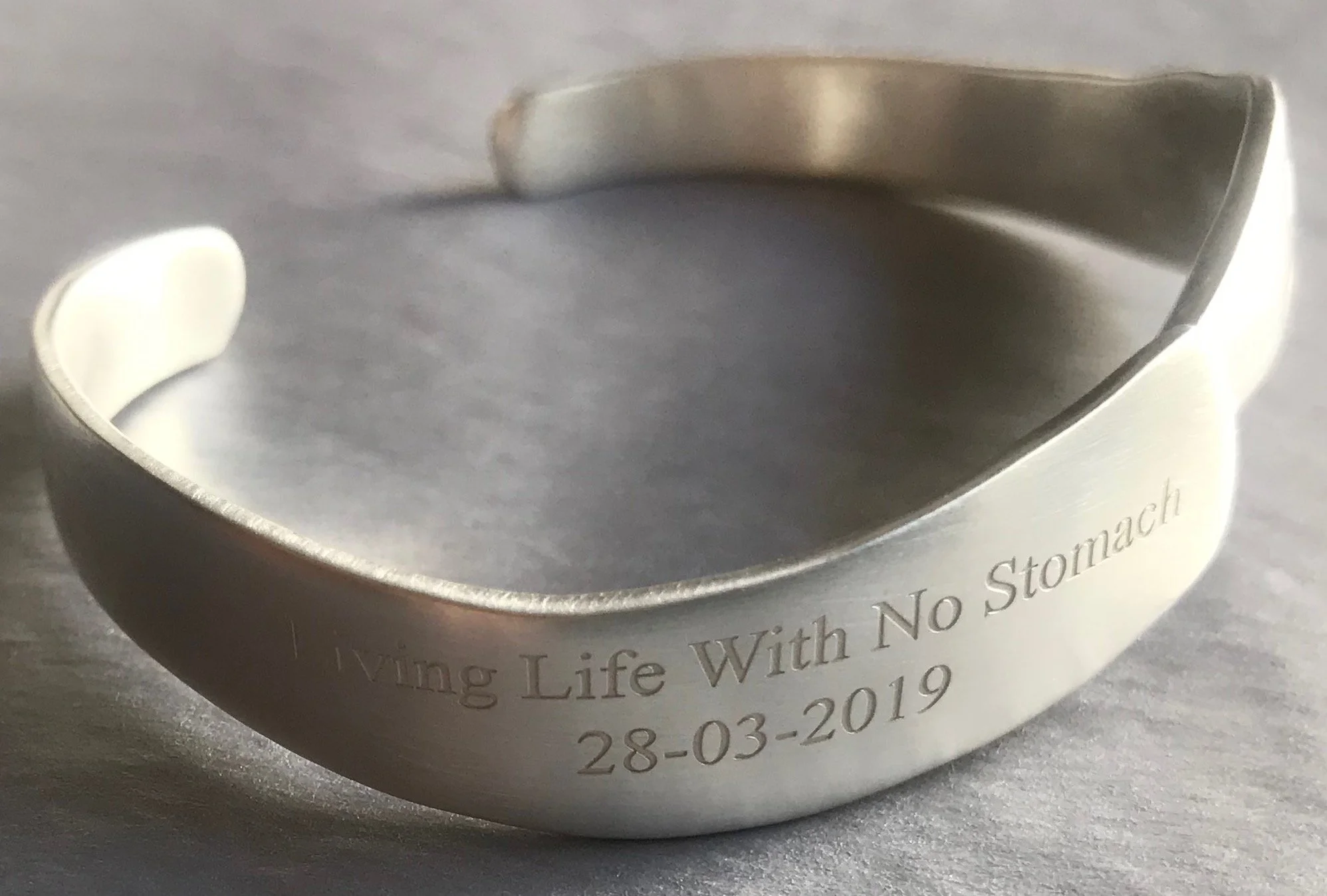Total Gastrectomy Bracelets
No stomach, also known as total gastrectomy, is a surgical procedure where the entire stomach is removed. The esophagus is then connected directly to the small intestine. This procedure is typically performed to treat cancer of the stomach or other serious stomach conditions that cannot be treated with other methods.
Why It Is Crucial to Wear a Medical ID Bracelet If You Have No Stomach
After a total gastrectomy, the digestive process is significantly altered, and patients must follow a strict diet and medication regimen. Wearing a medical ID bracelet is crucial for several reasons:
Emergency Medical Personnel: In an emergency situation, medical ID bracelets provide critical information to first responders and other medical personnel about the patient's condition, previous surgeries, and medication regimen.
Prevent Misdiagnosis: A medical ID bracelet can prevent misdiagnosis and potential harm from medical procedures, such as imaging tests or diagnostic procedures, that may not be suitable for someone who has had a no stomach surgery.
Avoid Medication Interactions: Patients who have had a total gastrectomy require lifelong medication to aid in digestion and to replace the stomach's natural functions. A medical ID bracelet can alert healthcare providers to avoid prescribing medications that could interact with the patient's digestive system.
Why Might Someone Need a No Stomach Surgery?
A total gastrectomy may be necessary for several reasons, including:
Stomach Cancer: This is the most common reason for a total gastrectomy. If cancer of the stomach is present, removing the entire stomach may be necessary to prevent the spread of cancer cells to other parts of the body.
Non-Cancerous Conditions: Certain non-cancerous conditions, such as ulcers, polyps, and chronic inflammation, may require the removal of the entire stomach.
Inherited Conditions: Rare inherited conditions like hereditary diffuse gastric cancer (HDGC) can lead to cancer of the stomach and may require a total gastrectomy.
Types of No Stomach Surgery
There are several types of no stomach surgeries, including:
Open Surgery: This is the traditional method of performing a total gastrectomy, where a large incision is made in the abdomen.
Laparoscopic Surgery: In this procedure, a surgeon makes several small incisions in the abdomen and inserts a laparoscope, a long, thin tube with a camera attached, to guide the surgical instruments.
Robotic Surgery: Robotic surgery is a type of laparoscopic surgery where a surgeon controls a robotic arm to perform the procedure.
Symptoms and Treatment for No Stomach
After a total gastrectomy, patients must follow a strict diet and medication regimen to prevent complications. The most common symptoms after surgery include:
Dumping Syndrome: This is a condition that occurs when food moves too quickly through the small intestine, leading to symptoms like nausea, vomiting, diarrhea, and dizziness.
Malnutrition: Patients who have had a no stomach surgery are at a higher risk of malnutrition due to the altered digestive process.
Reflux: Acid reflux is common after a total gastrectomy, and patients may require medication to manage the symptoms.
Treatment for no stomach involves several lifestyle changes and medication to help the patient digest food properly. The following are some treatment options:
Dietary Changes: Patients must follow a strict diet that is low in fiber, fat, and sugar and high in protein to aid in digestion.
Medication: Patients may require lifelong medication to aid in digestion, such as pancreatic enzymes, bile acid sequestrants, and proton pump inhibitors.
Follow-Up Care: Regular follow-up care with a healthcare provider is essential for monitoring for potential complications and adjusting medication regimens.
No Stomach Online Resources
No Stomach For Cancer: No Stomach For Cancer is a nonprofit organization that focuses on raising awareness about stomach cancer and supporting individuals who have undergone gastrectomy. They offer resources, educational materials, and a community for sharing experiences.
Stomach Cancer Foundation: While not exclusive to total gastrectomy, the Stomach Cancer Foundation provides information about stomach cancer, including treatment options and support for individuals who have undergone gastrectomy due to stomach cancer.
Oncolink - Total Gastrectomy Guide: Oncolink offers a comprehensive guide about total gastrectomy, including information about the procedure, recovery, and lifestyle adjustments. This resource can help individuals understand what to expect before and after the surgery.
